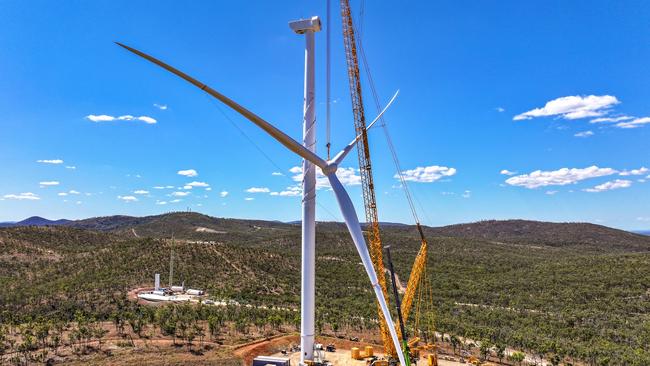Labor’s climate change plans are costing us, and making energy less secure

The situation is worse if the government response to market failure is to nationalise the loss makers. But this is exactly what is happening in the national energy market along the east coast from Victoria to Queensland. Coal and gas suppliers are being punished as projects favoured by government are lavished with public funds.
For renewables, a case study in market intervention, this means taxpayers are on the hook for increasing billions while four in 10 private concerns say they are less likely to invest because of government intervention. Infrastructure Partnerships Australia warns investments are being hampered by difficulties with land acquisition, social licence, environmental approvals and investment returns. The group says government should concentrate on fixing these issues rather than crowding out private firms. The results of government policy designed to marginalise coal and gas are already evident. The Australian Energy Market Operator warned on Tuesday of possible “reserve shortfalls in multiple regions” over an expected hot summer. It said there was potential for unplanned electricity/gas plant outages to degrade system reliability in all regions. Unfortunately, the destructive government forces that have up-ended the energy market are now being released on to industry and agriculture.
Climate Change and Energy Minister Chris Bowen has opened the first of two separate rounds of consultation that could pave the way for an Australian carbon border adjustment mechanism. The measure is conceived as a way to counter European carbon tariffs and stop high-emissions industry going offshore as a result of the government’s revised safeguards mechanism that will force companies to cut greenhouse gas emissions by 5 per cent each year. The danger is a trade barrier will morph into a new era of destructive industry protectionism that will lift prices, boost inflation and hurt consumers. Tariffs, ostensibly imposed to protect industry from places that do not have carbon policies like our own, will be used to further the Albanese government’s ambitions to remodel industry to produce green goods in a way that does not currently exist. Protectionist policies will dull the incentive to innovate at lowest possible cost and use market forces to disrupt the status quo.
The road map unfolding is for a highly interventionist government and command economy. Mr Bowen has said the “high level” options to address carbon leakage could include “emissions product standards, public funding and multinational initiatives”. The experience to date gives little confidence that these measures will be beneficial for the Australian economy. Rather, they are likely to hasten a trend in which the private sector retreats, exacerbating the lurch to a high-cost, low-productivity economy that increasingly takes its instructions from bureaucracy.


Rather than providing the promised investment certainty for business, the Albanese government’s climate change plans are prompting a private capital strike and less secure power. The findings of a new report by Infrastructure Partnerships Australia confirms what should have been obvious about government intervention from the outset. That is, it distorts risk and crowds out the private sector. Big business cannot afford to have the rules changed on a political whim and cannot compete with the deep pockets of government using other people’s money. What is left is inefficient delivery by government and rent-seeking behaviour from those whose business model is to hoover up government largesse.